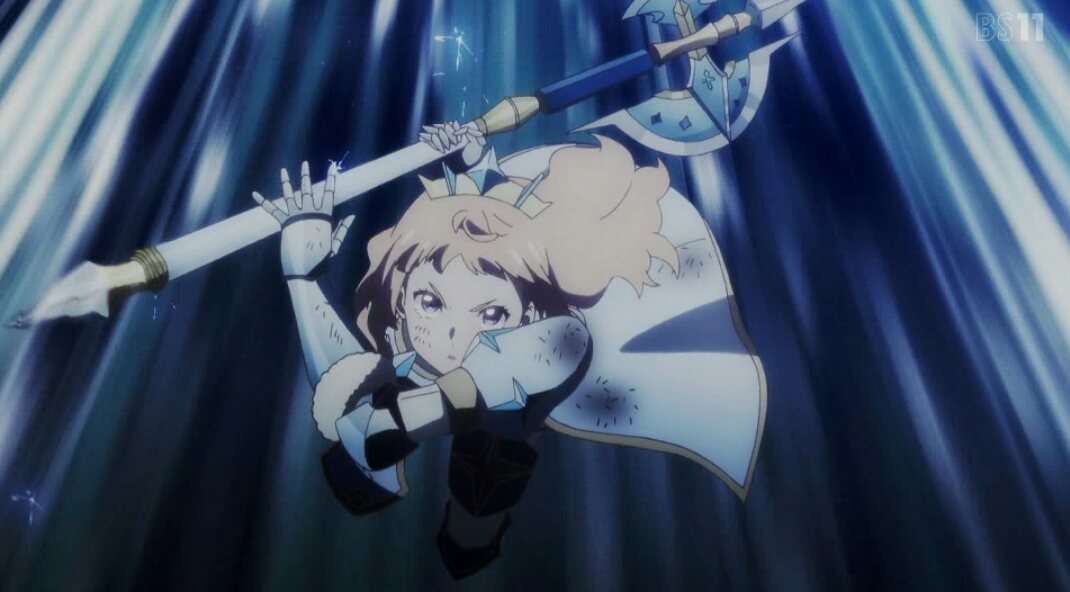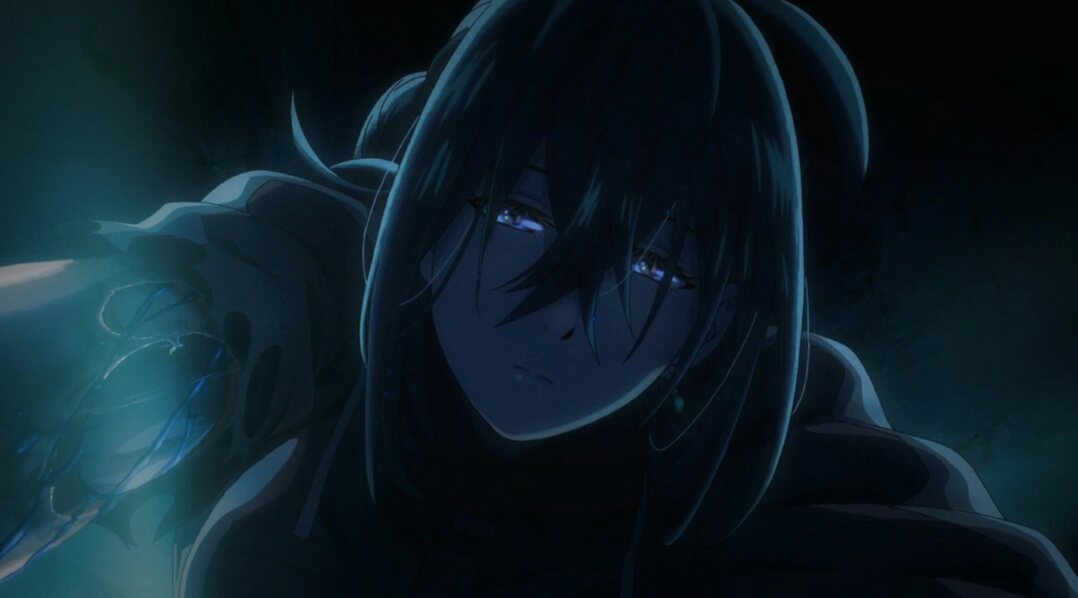SEASONAL PRATTLE
It’s that time already? Yes, yes it is. Once again we have a fresh new pile of airing anime to enjoy, and as usual, we’ll be reviewing a large chunk of them. If you’re new to these blogs, here’s a quick heads up on how this works: The first show covered (which directly follows this intro) is what we deem here as our “lead” – essentially a featured episode review for reasons that could be good or bad but deserve higher recognition either way. From there, the quality of the anime we’re covering typically decreases as you scroll down the page – thus the last anime listed tends to be what we consider “the worst” of that week.
Now with that out of the way, let’s dig into what we have!
While we still have some lingering Winter shows wrapping up, leading us off is Vivy: Fluorite Eye’s Song which delivers a praiseworthy premiere, neatly painted in smooth narrative strokes and aesthetic embellishments that makes its AI-infused drama rather friendly to engage with and inevitably, invest in. The content here is plush – it’s gifted with two episodes on debut that marries its central conceit to a good sense of worldbuilding and pace, elevated through visual acuity and fine use of dramatic appeal. If there are any reservations, it would be that Vivy’s own character feels somewhat archetypal so far, but her behavior hasn’t emerged in a way that actively harms the story even through two episodes. Original anime can be a tricky proposal to pick up, their track record in recent years is mixed enough to be cautious, but this one appears to be worth the watch.
Wonder Egg Priority (12)
“Lends itself well to a set of appreciable storytelling and directorial tics”
Wonder Egg Priority’s second to last spectacle arrives, tackling the deep seated necessity of loving and being loved in addition to related facets of Ai’s headspace with a considerably thoughtful depiction. On a whole, twelve is cleverly constructed: Some of Ai’s largest thematic pushes throughout the episode are nicely double-stitched due to the inclusion of her parallel, and by that I mean the parallel’s representation, both physical and ethereal, of Ai’s former hangups down to her body language and dialogue choices is almost always used in such a way where it’s a welcomed prop for how far our main “happy” Ai has come – particularly offering a second layer of nuance to some of the more seemingly passive events that unfold on screen.
This lends itself well to a set of appreciable storytelling and directorial tics that twelve would release, creatively playing with viewer perspective as it weaves between Ais’ fight with Sawaki and reality, and upholding twelve’s themes of duality with Sawaki drilling down on his two-faced nature. It all ultimately amounts to a rewarding character piece for Ai and one more substantive dive into the tangled personal drama that naturally facilitates this show’s core values – once again converting its thematic weight into legitimate emotional investment in doing so. Wonder Egg Piroity’s entries are just really satisfying in their own right, and collectively, are great as a mental journey. Hopefully the finale will be the same way too.
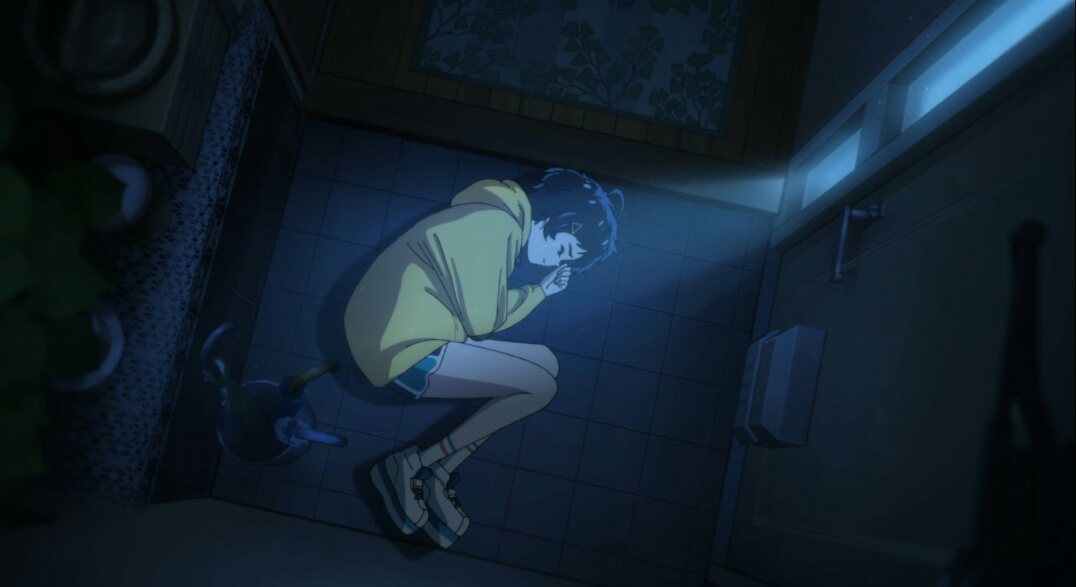
Horimiya (13)
“A more careful adaptation would have certainly gone a long way to its quality”
Aaand Horimiya finally comes to an end, using its last breath to deliver an outcome that was essentially a foregone conclusion – Miyamura and Hori are going to continue to be together, and the rest of the cast will stay friends moving ahead – all played out in the thick familiarity of an optimistic graduation episode. Overall, Horimiya was a series that had its share of strengths and flaws – from start to finish it has a good grasp of chemistry and is pretty competent with the fundamentals demands of its genre, which is always pleasing to see. However, the series did peak early on, when its flagship pair was still getting together, and CloverWorks’ apparently bottomless appetite to outright skip material or awkwardly pace certain segments does show up as noticeable damage. Horimiya never really ended up as good as it could be, a more careful adaptation would have certainly gone a long way to its quality, but it’s in good enough shape to be justly enjoyable.
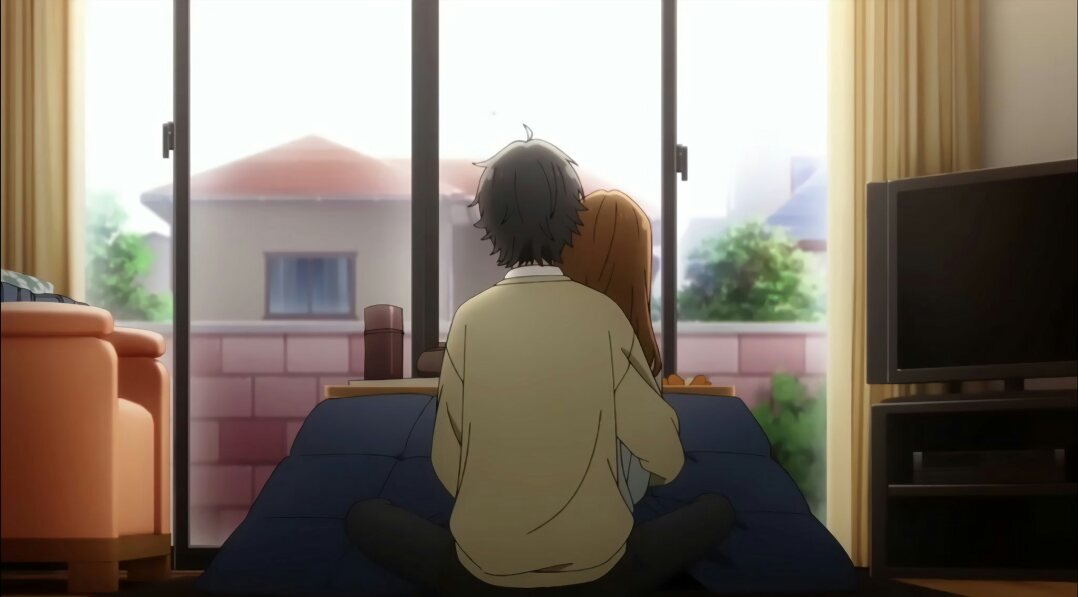
Mars Red (1)
“Gets by more on certain stylistic choices and preliminary curiosity of its premise”
Signal.MD joins the early Spring season with Mars Red – offering a reasonable premiere that gets by more on certain stylistic choices and preliminary curiosity of its premise as opposed to a grasp of storytelling and brand of writing that truly grabs. Episode one is propped up by a supernatural, military slant that’s wholly concerned with vampires and handles with reminiscent whiffs of Fairy Gone minus some of the overbearing exposition. Conceptually, it functions okay for the most part, perhaps getting a little too baggy when weaving Misaki and her theatrics back to Maeda, but the overarching art direction and ultimate composite do their share to make some of those beats feel more capable and sturdy on the surface. Decent all in all, but Spring likely has better options if you’re limited on time.
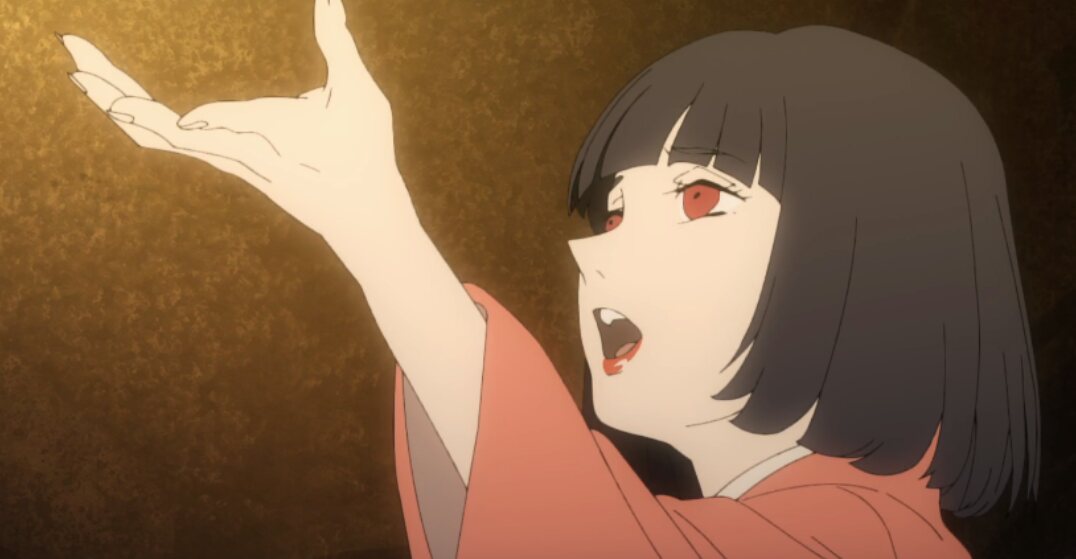
Mashiro no Oto (1)
“Accomplishes creating a reasonable platform to launch future drama off of, and with that, it at least does its job in the end.”
Mashiro no Oto is pretty humble production-wise, but its start is told fair enough to make it to the ending theme song without too many bumps. The narrative so far is a somewhat blended rendition consisting of a Kono Oto Tomare-ish sell at its core and a lot of plotting that’s reminiscent of much older, mildly dramatic works that used to be churned out fairly often in the industry. Episode one’s structure is mostly just setup, getting Yuna, Setsu, and Taketo situated in what turns out to be a bit of a cliche operation, that at times, suffers from all too convenient pieces of writing. Be that as it may, it still accomplishes creating a reasonable platform to launch future drama off of, and with that, it at least does its job in the end. Mashiro no Oto likely won’t turn any heads, but there’s enough here where it appears it won’t have a ton of trouble avoiding the trashcan right away.
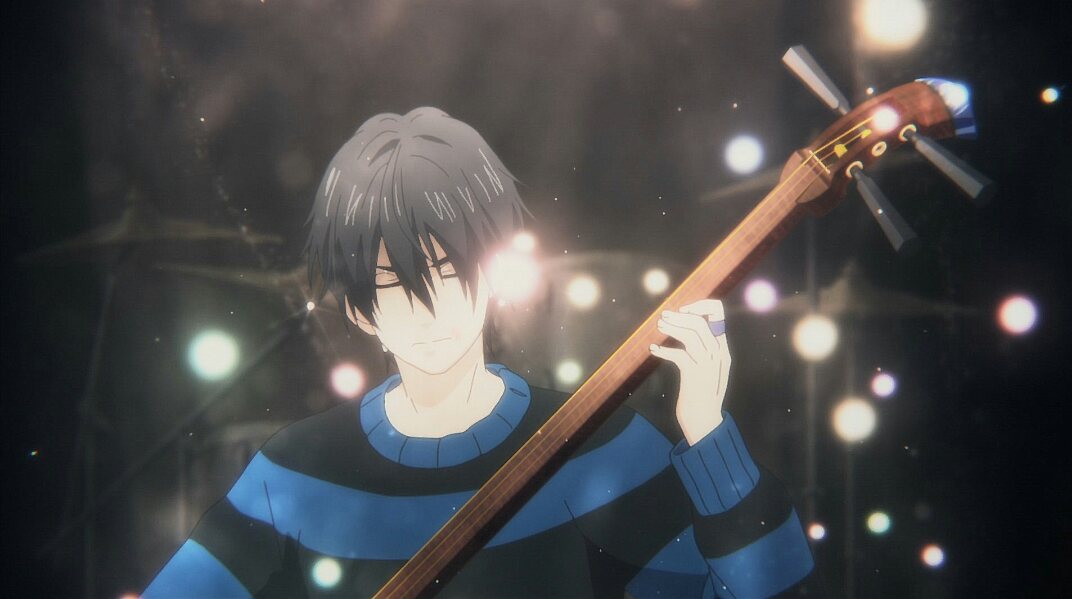
Shaman King (1)
“A fine job of recapturing and converting Takei Hiroyuki’s vision into motion without hard sacrifices or real drops”
It’s good to see Shaman King back and running well. The original run has a special place in Shounen Jump history along with Xebec’s catalog – having a particular mixture of genre touchpoints and narrative flows that various shounen would borrow for years to come. And while nothing is too standout so far about Bridge’s 2021 reboot of the series, they do a fine job of recapturing and converting Takei Hiroyuki’s vision into motion without hard sacrifices or real drops. For remakes, sometimes just staying the course is good enough – you don’t always need to do things drastically different or try to boldly imprint your vision on the text – and that shows here.
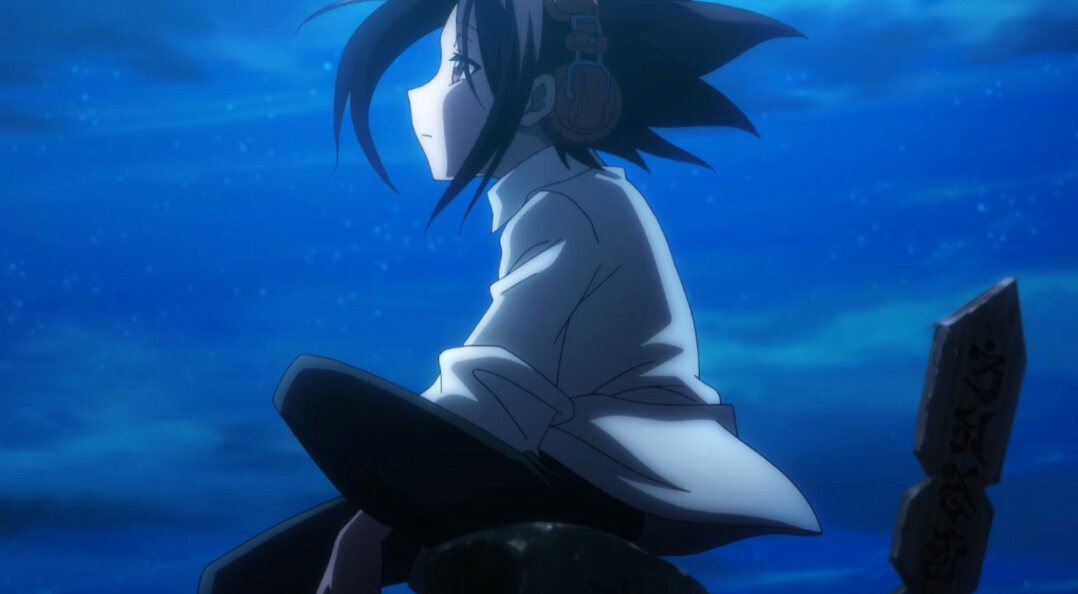
Edens Zero (1)
“Never really ventures far from its genre’s playbook”
Edens Zero begins, submitting a pitch-perfect imitation of any given battle shounen from the 2010s, and baking that in an unmistakably Fairy Tail mold as if to evaporate whatever shreds of originality that remained. By all accounts, this is tepid – even with a two-episode launch, most of the material presented is an inoffensive run that just checks the preliminary boxes of its narrative and never really ventures far from its genre’s playbook. Edens Zero will likely be a reasonable show in time, but at the moment, there’s nothing really noteworthy or impressive about it.
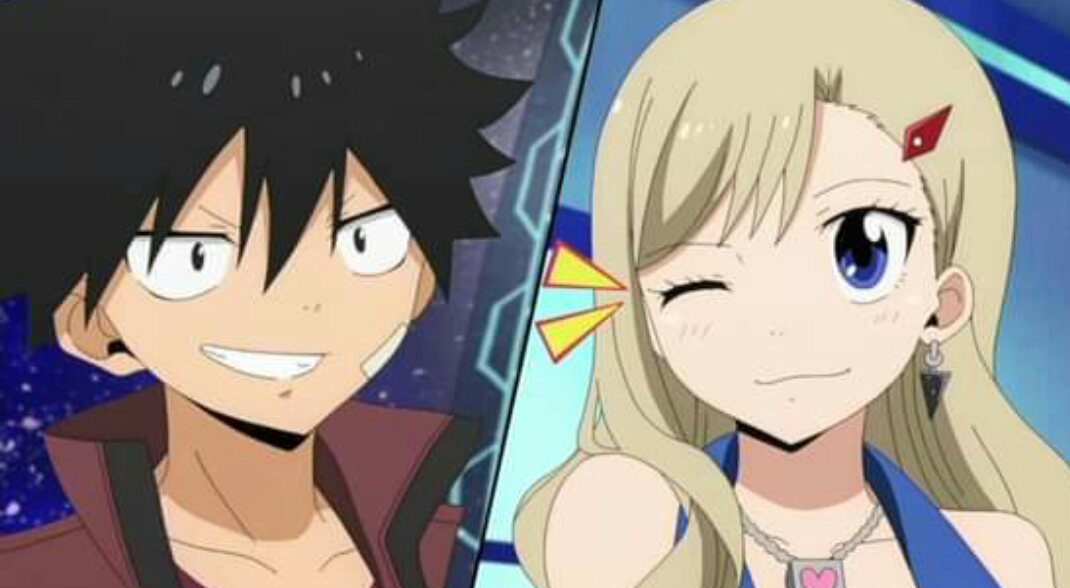
Shakunetsu Kabaddi (1)
“It lacks raw narrative intrigue and harder reasons to invest upfront, but it’s still a serviceable watch”
Shakunetsu Kabaddi demonstrates it’s still relatively easy to make even the most obscure sports work in anime if you just tie it to the storytelling fundamentals of a niche school club that’s needy for members. And that’s pretty much what’s done here; Episode one offers a rundown that covers the recruitment phase that’s so common with these types of shows, in addition to the general explanation/exhibition of its sport, and well, not much else beyond that. There are some decent comedic punches sprinkled around, a bit of light character building, and a level of visual execution that thankfully isn’t harmful to the episode’s overall quality. It lacks raw narrative intrigue and harder reasons to invest upfront, but it’s still a serviceable watch.
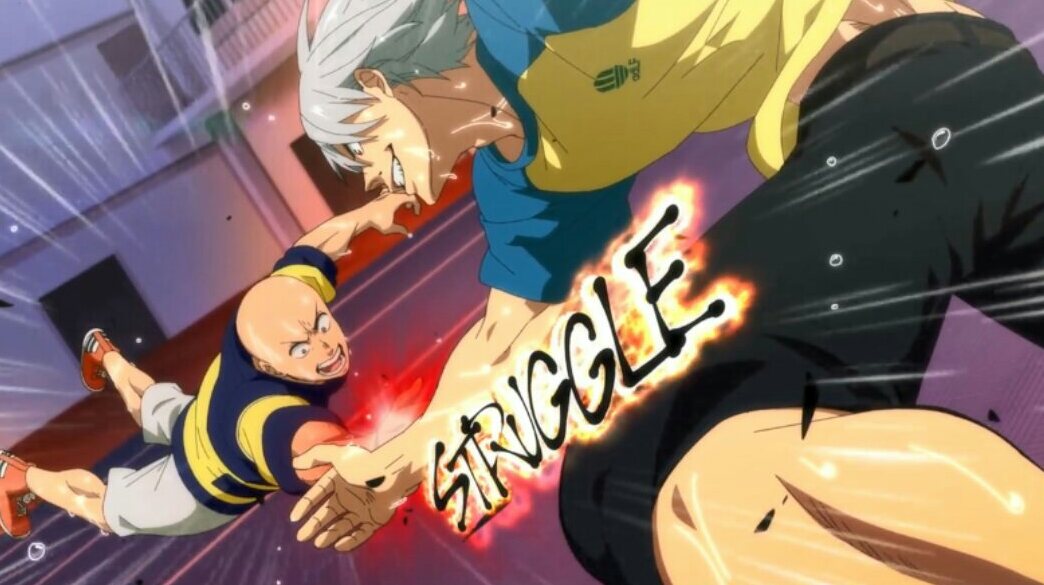
Kyuukyoku Shinka shita Full Dive RPG ga Genjitsu yori mo Kusoge Dattara (1)
“Insight and novelty one would expect from just looking at its ridiculously long light novel title and cover”
A new season of anime just isn’t complete without a VR game series, dunked with the typical antics and tropes already seen abundantly elsewhere, and paired with a production effort that never seems to amount to anything more than okay. This Spring, Kyuukyoku Shinka shita Full Dive RPG ga Genjitsu yori mo Kusoge Dattara is the first anime to emerge to fill this gap – executing its start with roughly the insight and novelty one would expect from just looking at its ridiculously long light novel title and cover.
Our lead in Hiro shows absolutely nothing to distinguish himself from his peers in similar works, the fantasy world it’s all set in is entirely forgettable, and its attempts at comedy are an assortment of hits and misses. If there is anything worthy of upside here, that has to be that Reona is quirky enough to balance out some of Hiro’s scenes, and spots of its plotting is at least structured in a way to provoke interest. By credit roll, it’s not an outright awful start, but clearly underwhelming in a lot of ways.
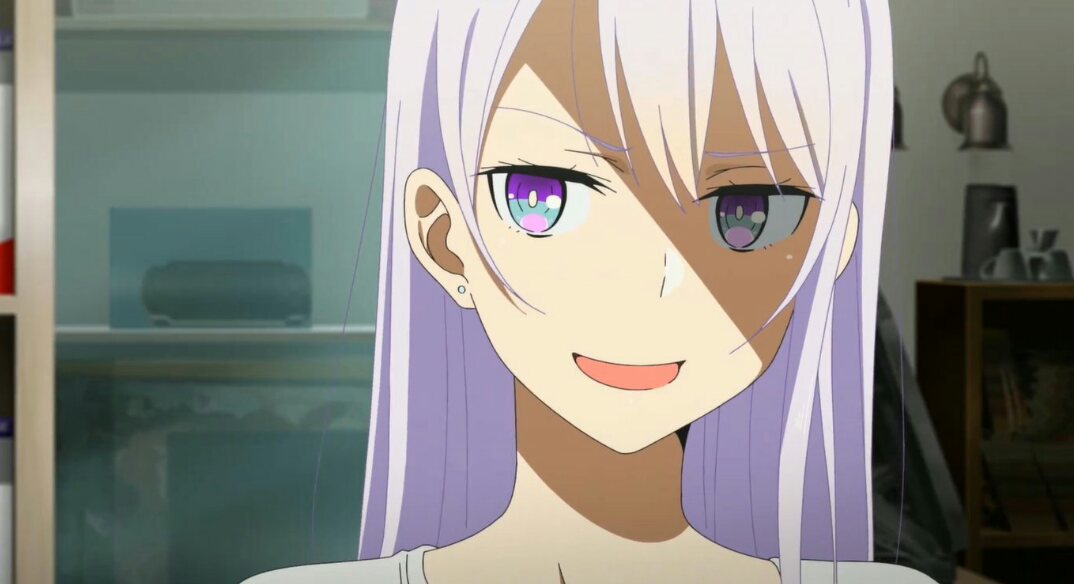
Joran The Princess of Snow and Blood (1)
“Manages to avoid any major hiccups”
Joran The Princess of Snow and Blood introduces itself, not showing a whole lot of upside or promise as it mostly just manages to avoid any major hiccups and get the gist of its story online. More or less, episode one plays in a way where it expects you to care about Sawa’s organization and interest in revenge purely because they exist – there’s no solid emotional or thematic hook, just a quick shuffle through Sawa’s scuffed daily life before bleeding over to her team and presumably her real work that gives way to some really average imagining of what action looks like.
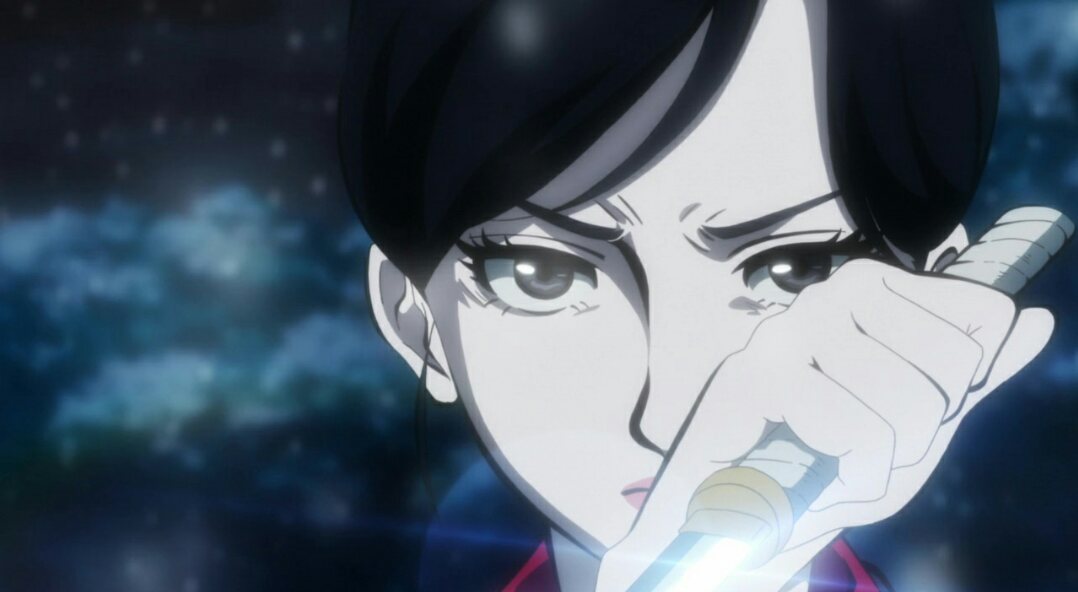
Sentouin, Hakenshimasu! (1)
“Often an uphill battle to be truly funny and its service is conventional at best”
Sentouin, Hakenshimasu! makes a mixed debut – it’s labeled a comedy and clearly leans on ecchi beats, yet the anime’s sense of humor is often an uphill battle to be truly funny and its service is conventional at best. The entirety of episode one is constructed as if Natsume Akatsuki was scared of the dire prospect of actually having to write a real story or even introduce the characters, and by the time it’s all wrapped up, there’s not even much of a hook to go on. Underwhelming.
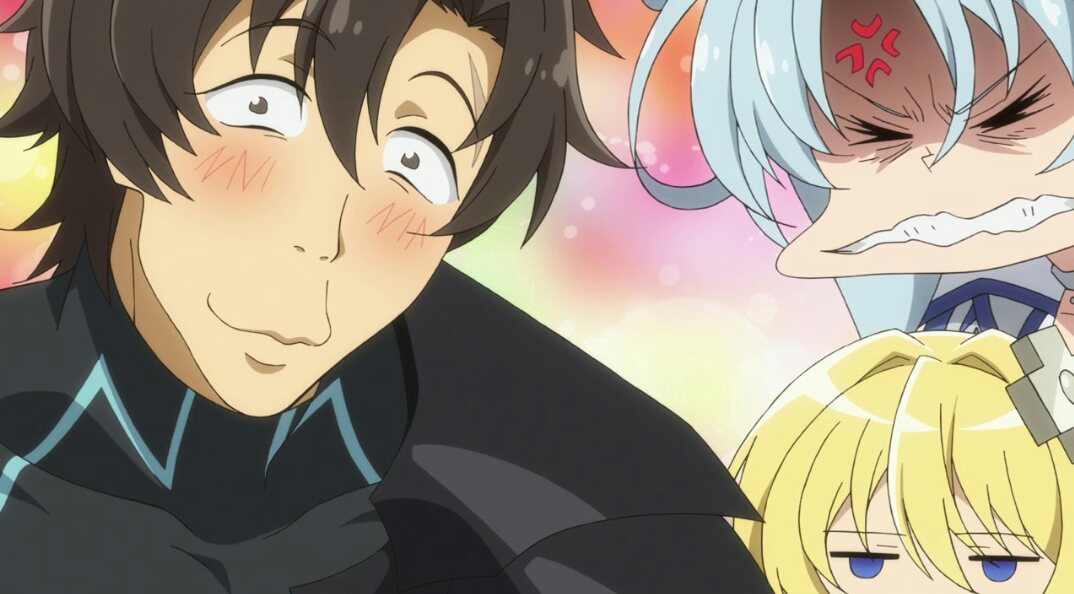
Koi to Yobu ni wa Kimochi Warui (1)
“Desperately in need of anything resembling creativity”
Koi to Yobu ni wa Kimochi Warui gets started, sadly bringing next to nothing that deserves applause. Its two leads in Ryou and Ichika go through the motions of a thoroughly basic romance script to get gradually involved with one another across the course of this premiere, and the show’s insight and attempts at comedy in that process make for a mixed bag rather than a consistent joy. It appears the most notable takeaway here is that it’s the precise concoction of tropes you’ve likely seen before and mild patches of writing to make for an immediately middling show in its genre space – desperately in need of anything resembling creativity. Time will tell if that’s really how it holds, but for now, it’s hard to argue that this is anything more than average.
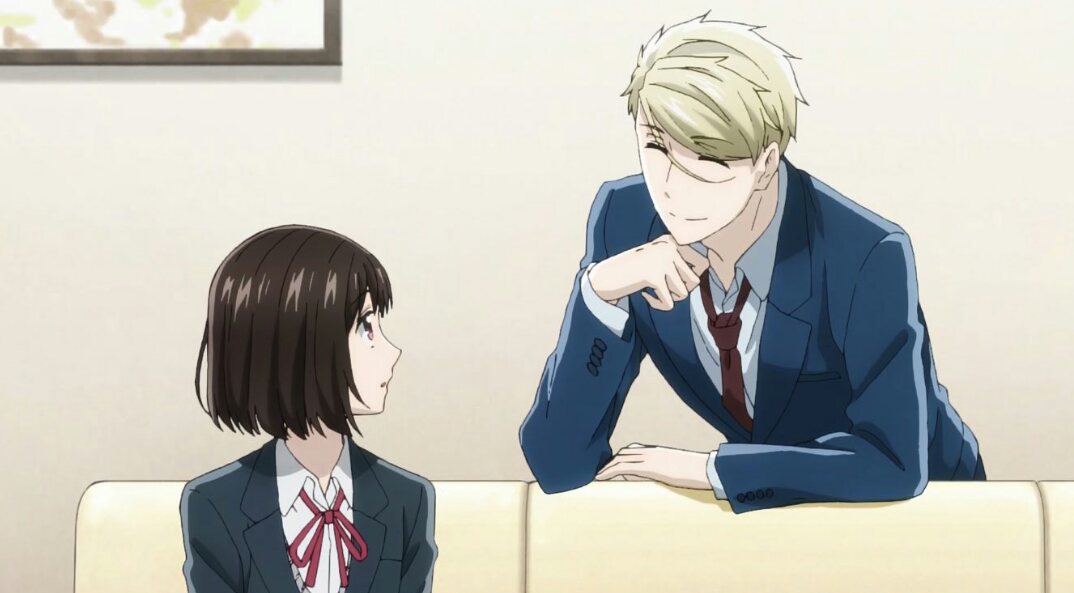
Godzilla: Singular Point (1)
“A mild slush that’s not easily digestible or even all that attractive in hindsight”
With more engaging banter and a stickier portrayal of its conflict, Godzilla: Singular Point could have been on its way to making its case for at least having a decent debut. Unfortunately instead, this is just an accumulation of light character introductions, all too evasive plotting, and bright sci-fi overtones that are mixed into a mild slush that’s not easily digestible or even all that attractive in hindsight.
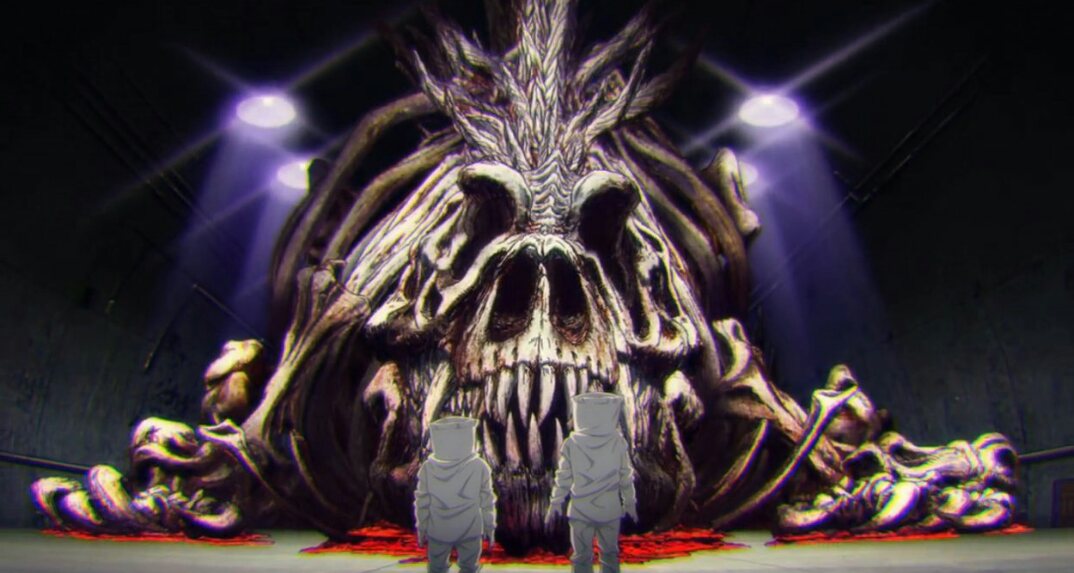
Dragon, Ie wo Kau. (1)
“Great if you like the taste of tap water”
Signal.MD’s second show of the Spring is here, and it’s great if you like the taste of tap water. Dragon, Ie wo Kau. doesn’t have an outwardly bad start, it’s just that it happens to be exactly no more than a functional fantasy entry based around all the thrills of house-hunting. The world is stock effort, the comedy is weak, and the characters are fairly one-note, so basically your entertainment here will come down to your linked appreciation for generic fantasy features and real estate. Good luck with that, I’m rooting for you.
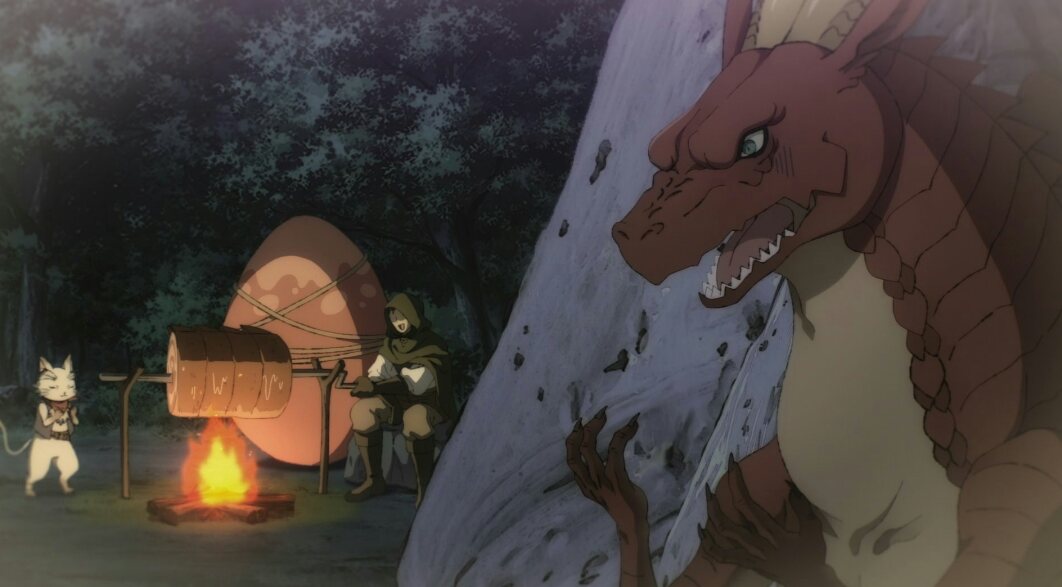
SSSS.Dynazenon (1)
“What happened to you Trigger?”
SSSS.Dynazenon debuts, accelerating through plot points and introductions as if it’s late for a meeting, leaving a path of vague concepts and the distinct feeling of being underwhelmed behind it. It’s as if episode one’s primary objective is just to be overly quirky, cross its fingers, and hope that’s enough to please viewers. Almost every beat rides on plain curiosity more than an appreciable pool of writing: The first 15 minutes of the episode consist of an awkward scattered following of characters with virtually next to no reason presented to care about any of them as individuals, especially our lead in Yomogi, their needs or the greater story they find themselves in.
Form there, the remaining time essentially shakes out as a broke version of SSSS Gridman from a couple of years ago, reminiscent in scale and conflict resolution, but being dramatically ineffective in build up and overall less rewarding with Dynazenon victory when it’s all said and done. Jeez, what happened to you Trigger?
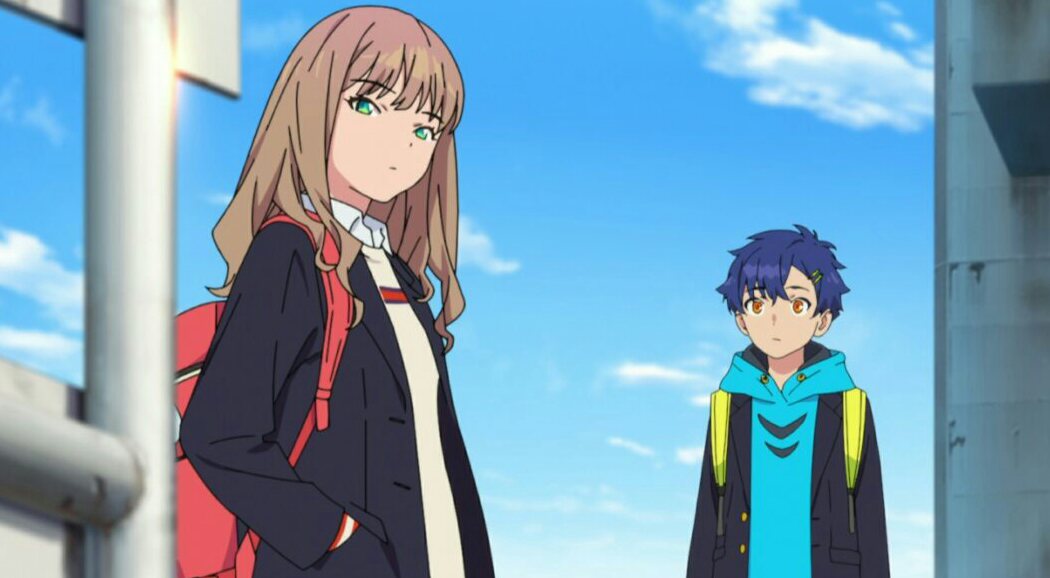
Seven Knights Revolution: Eiyuu no Keishousha (1)
“The same lukewarm pool that something like Hortensia Saga regularly bathes in”
Lastly, Seven Knights Revolution: Eiyuu no Keishousha appears, immediately turning out to be one of those shows that are often defined as “inoffensive,” but better defined while clicking the back button to go pick a new anime to watch. If you don’t mind just barely passable storytelling that’s in the same lukewarm pool that something like Hortensia Saga regularly bathes in and mild action sequencing – then this can offer you faint whiffs of being a decent show.
